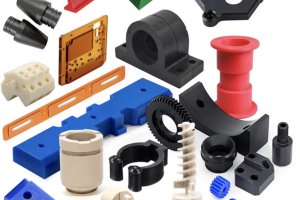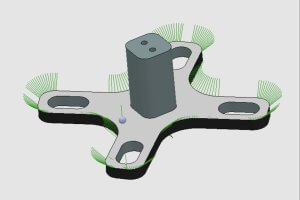Importance of Cost-Effective Manufacturing Strategies for Small Businesses and Startups
The implementation of cost-effective manufacturing strategies is a critical component in the success of small businesses and startups. Operating with limited resources, they need to optimally utilize production processes that minimize costs while maximizing output. These strategies not only ensure business survival during challenging times but also lay a strong foundation for future profitability and growth. For instance, adopting lean manufacturing – eliminating waste from the production process, can greatly reduce operation costs and increase efficiency. This underpins the important strategic decision-facing startup manufacturers about when, where, and how to manufacture products. Thus, striking a balance between cost-effectiveness and maintaining product quality emerges as an overarching strategy crucial for the robust performance of small businesses.
Assessing Production Needs for Small Businesses and Startups
Cost-effective manufacturing strategies start with a primary step, assessing production needs. This involves identifying the specific requirements necessary to produce goods or deliver services that align with the business’ goals. Take for instance; a startup beverage company must determine its production capacity— from raw material procurement to packaging not excluding storage space. Moreover, determining market demand is fundamental in estimating required production volume. If a 60% target segment of the local population consumes two bottles of juice weekly, this data determines how much the company must manufacture to meet such demand. Essentially, adequate evaluation of market demand combined with precise understanding of production requirements offer strategic advantages, optimally positioning businesses towards cost-effectiveness.
Implementing Efficient Production Practices: Automation and Technology
For small businesses and startups, leveraging automation and technology is a pivotal strategy in achieving cost-effective manufacturing. These tools not only enhance productivity but also ensure precision and reduce operational costs. Below, we explore how automation and technology can be effectively implemented to supercharge manufacturing processes.
Key Technologies Driving Efficiency
- Industrial Automation: Robotics and automated machinery streamline production, minimizing manual labor and reducing the scope for errors.
- Additive Manufacturing: 3D printing technologies allow for rapid prototyping and production, reducing waste and enabling complex designs at lower costs.
- Artificial Intelligence (AI): AI-driven systems optimize production planning, predict maintenance needs, and enhance quality control.
Benefits of Automation in Manufacturing
| Technology | Benefit |
|---|---|
| Robotics | Increases production speed and consistency, while reducing labor costs. |
| Automated Software Solutions | Improves scheduling and inventory management, leading to efficient resource utilization. |
| AI-Enabled Systems | Facilitates anomaly detection and predictive maintenance, reducing downtime and maintenance costs. |
Implementing Technology for Optimal Results
To harness the full potential of automation and technology, small businesses and startups should:
- Identify specific areas within their manufacturing process that can benefit from automation.
- Invest in scalable technologies that can grow with the business.
- Train staff to effectively manage and operate new technologies.
- Regularly review and update technology to keep pace with advancements in the field.
By strategically implementing automation and technology, small businesses and startups can achieve significant improvements in production efficiency, cost reduction, and product quality. This approach not only positions them competitively in the market but also lays a foundation for sustainable growth and innovation.
Implementing Efficient Production Practices
For small businesses and startups, strategically implementing cost-effective production strategies can significantly enhance productivity while minimizing expenses. Automation and technology solutions are effective tools for streamlining operation processes by eliminating redundancies and bottlenecks that often lead to inefficiencies. For instance, automated workflow software can optimize task delegation, monitor process completion, and identify areas of delay in the production chain. Investing in these advancements not only boosts productivity but also helps to reduce operational costs over time. Further enhancements can be achieved through cross-training employees. This approach broadens each employee’s skills base, enabling them to operate across different areas when required and keeping labor costs down by limiting reliance on specialized personnel.
Embracing Sustainable Manufacturing
Small businesses and startups can utilize sustainable manufacturing as a cost-effective strategy. This entails the adoption of eco-friendly materials and processes that help to decrease waste and minimize resource consumption. For instance, a small coffee shop could switch to biodegradable cups made from plant-based materials instead of plastic ones, thereby reducing its carbon footprint and waste generation. Additionally, leveraging renewable energy sources such as solar or wind power helps in lowering utility expenses, making operations more affordable in the long-term. Moreover, clearly communicating these green practices to customers offers a competitive advantage as they present the company’s commitment to sustainability, an aspect increasingly valued in today’s market environment.
Collaborating with Partners and Outsourcing
Small businesses and startups can adopt cost-effective manufacturing strategies other than directly piling up massive infrastructural investments. Collaborations with complementary business partners play a crucial role in resource sharing, thus reducing the overall operating costs. For instance, a furniture startup could partner with an established timber supplier for steady supply at negotiated prices. Another effective strategy is outsourcing non-core activities like logistics or customer service to specialized companies. This allows the business to focus its resources on key production processes. However, it’s important to conduct thorough due diligence when selecting outsourcing partners to ensure quality and cost-effectiveness. A software development startup, for example, may outsource customer support to a company specializing in this area, thereby guaranteeing reliable services to their clients while maintaining lean operations.
Other Articles You Might Enjoy
- Cost-Effective CNC Machining: Evaluating Material Choices for Budget-Conscious Projects
Introduction to Cost-Effective CNC Machining CNC (Computer Numerically Controlled) machining is an advanced manufacturing process that uses programmed software to control tools and machinery. In the contemporary production sector, this…
- 3 Effective Strategies for Cost Optimization in CNC Prototyping
When considering the production of CNC prototypes, cost is often a top concern. As designers, we strive to find ways to reduce expenses and enhance production efficiency. In this article,…
- Precision CNC Machining for High-End Audio Equipment
Precision CNC Machining in High-End Audio Equipment Manufacturing Precision Computer Numerical Control (CNC) machining refers to a highly-advanced technology where computer-generated codes are used to operate factory machinery and tools.…









